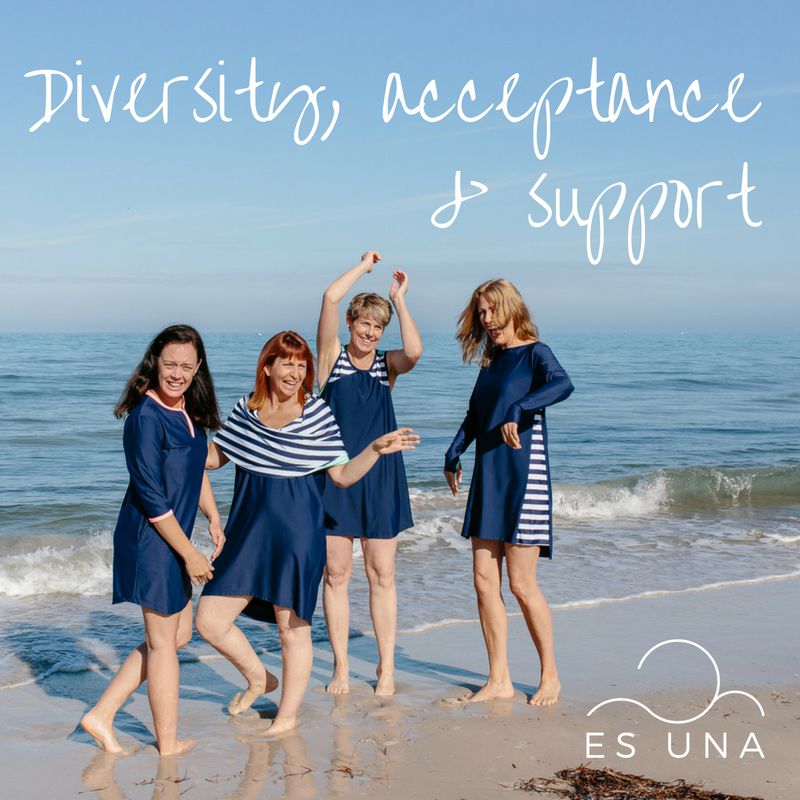Diversity, acceptance & support

In recent years, we’ve seen fashion open its doors to let more diversity flow into an industry that was once reserved for a very defined (and often unrealistic), singular standard.
Slowly and more broadly, fashion is acknowledging that there is more than one definition of beauty. While there remain flaws, when you compare it to what it was just a short decade ago, it is now more inclusive. Not only do we see more people from different races and cultures on the runways and ads, but there’s also the banning of unhealthily thin models in countries like France and there are movements like #nonairbrushedme and #therealcatwalk to bring every day reality into promotions.
Many in fashion are now taking responsibility for building self-esteem of generations of women, young and old, who had previously been led to believe that there was such a thing as a perfect body.
Because after all, does anyone, no matter how big of a brand they are or internationally influential, have the right to define what is the ‘perfect’?
When we were teenagers, I remember one of my best friends announcing to me that she had the same measurements as Elle MacPherson. She wasn’t boasting, just being factual. I was honestly horrified but impressed at the same time. Elle MacPherson #thebody, tall with an enviable waistline and ample bust.
Little did I know that, despite these seemingly unachievable measurements, she had struggled with her body image her entire life. And we, her best friends, had no idea. She would later tell us, “Yes, the rational part of my brain does tell me that my body confidence issues are ridiculous, but the emotional side still looks in the mirror and sees a myriad of faults.” It was a surprise to me, someone who has battled a growing waistline my whole life, that someone who literally was #thebody beautiful, would also be insecure.
When we were in year 11, we were in the senior centre at the girls' school we went to and she said something about feeling fat and got shot down. No-one got it. We all thought she was perfect. Why couldn’t she look at her own body and be happy?
Despite having a body that even fashion designers would have deemed ideal for the runway at the time, her own opinion was the opposite.
Young girls and women judge themselves unfairly and too often - and it has nothing to do with how we actually look - it's about how we feel about ourselves. We have become our own harshest critics.
Thankfully, a lot has changed since we were in year 11. The beauty world is evolving for the better. In fact, the very definition of beauty has changed thanks to women who refuse to fit into a mould or follow a standard.
Brands like Modibodi promote body diversity with campaigns that proudly showcase gloriously different women. And there’s also companies like Dove, who promote ‘beauty as source of self-esteem, not anxiety’, and Aerie, who boldly refuse to airbrush their models, promoting body positivity, self-esteem and girl power - all in one! As we grow our brand at Es Una, we too will build on a diversity aesthetic with each new campaign. We’ve started with Mums and will take on more from here.
At Es Una, we are all about confidence. We’ve created something for you that you can wear that lifts your spirits. It’s not about body size; it’s about real women who have lived life and gained life’s lessons along the way. We want to empower women, of different shapes and sizes, to feel comfortable with how they look, selecting modest swimsuit options they love, casting away those body insecurities and being sun smart too.